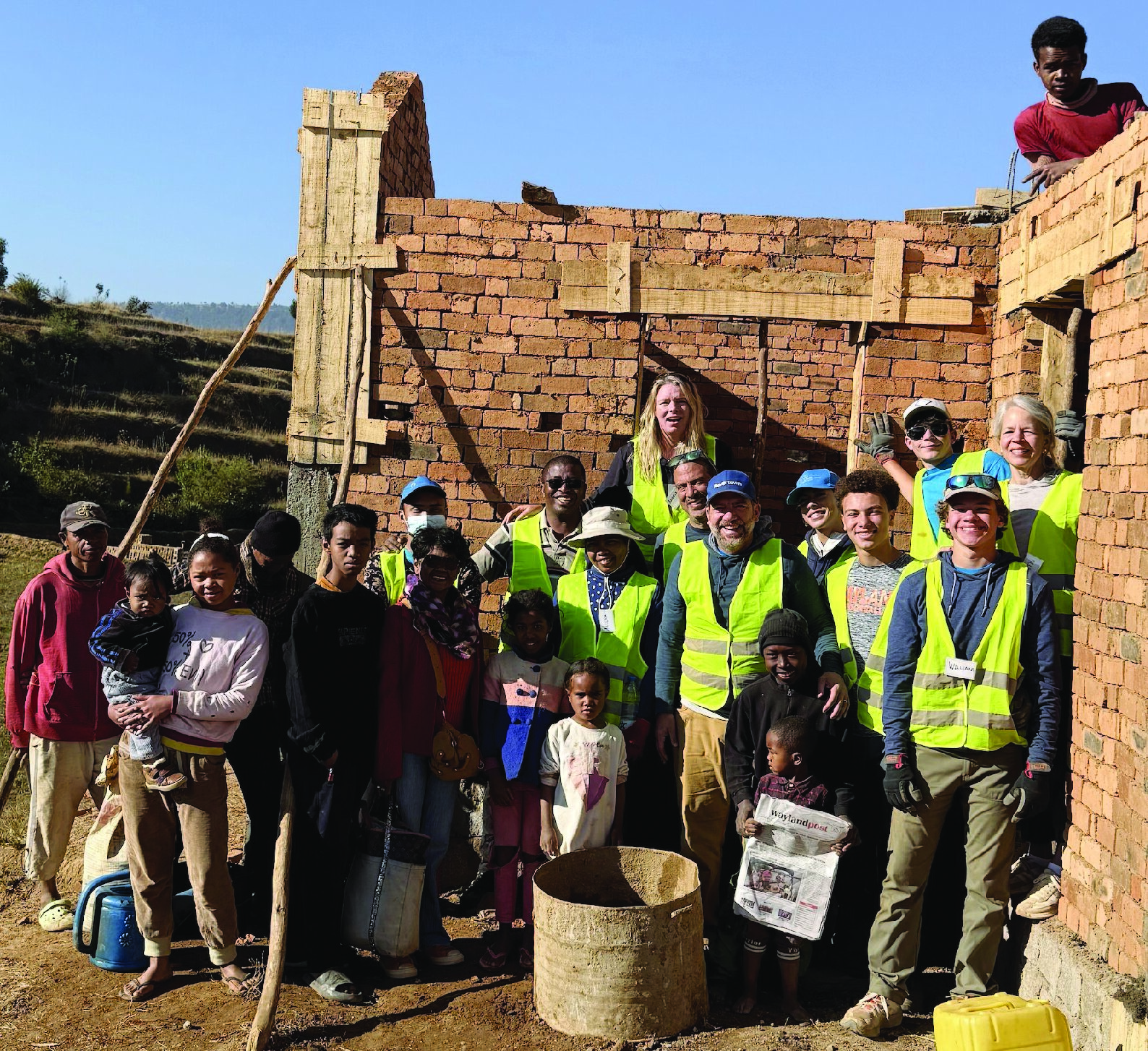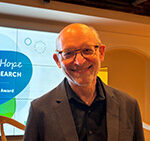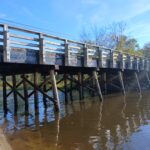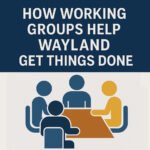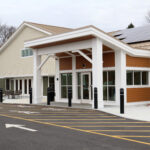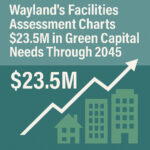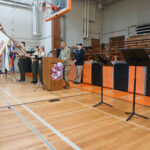The Walters and Zachery families just wrapped a week-long volunteer adventure building four homes in Madagascar as part of the Fuller Center for Housing initiative. We worked in Antsirabe, Madagascar, which is a 10-hour drive south of Antananarivo, the capital of Madagascar.
Four members in each family participated — parents Angela and Leon Zachary, Scott and Kristen Walters, and our children. Will Walters and Colen Zachery are both 17 and rising seniors at Wayland High School. Ella Zachery, 20, is a junior in college in Wisconsin, and Theo Walters, 14, will be a freshman at WHS. The Zacherys became involved with this project through the Walters family’s longtime friendship with Madagascar team lead Trisha Vos. This was her 57th “home building” project around the world.
Building homes was hard physical work. We moved and laid thousands of bricks using a homemade mortar of dirt and water. We mixed concrete with sand and hand-smashed granite. We bent rebar by hand to create reinforcements. Our team of 14 volunteers completed 80% of the work on four homes in one week, which would otherwise have taken two months.
I’ve been to other poor countries (Peru, Ecuador, Mexico), but what I saw in Madagascar was different. It is one of the poorest countries in the world. The building process, the dirt-cheap costs, and how the Malagasy people have adapted to their surroundings and primitive tools were fascinating. I now look at brick buildings in a whole different light. My lower back certainly feels the impact of this difficult week of manual labor.
The true emotional impact came when we visited the homes of two families who were selected as recipients of the homes we were building. It’s hard to describe the abject poverty and horrible living conditions we saw. The first “home” was a shack behind a storefront where the owner sold cassava, a starchy root vegetable. We squeezed into the small alleyway, shooing flies away and covering our noses from the stench to enter a single dark room. Low ceilings were covered with cardboard and a sheet. There were two low beds, a single table, and one dim solar-powered bulb hanging in the corner. Five people lived in this room, including a disabled man who spent all day lying in one of the beds.
The second home was no better. It was another single room nestled off a dirty back alley that housed a family of five, including a baby. It smelled like urine and excrement and was one of the most depressing sights I have ever witnessed. The woman who lived in this home was at the site all five days, working her tail off, moving bricks and performing whatever tasks required.
Each of the younger members commented on their experience. Ella Zachery said, “Our week in Madagascar was an unforgettable experience that taught me so much about resilience, gratitude, resourcefulness, and the strength of community. My favorite part was spending time building, playing, and connecting with the kids in meaningful ways despite the language barrier.”
“My trip to Madagascar really changed the way I see things. Getting to play, build, and laugh with the kids was one of the most fun and meaningful experiences I’ve ever had,” said Colen Zachary. Will Walters echoed that sentiment, saying, “My favorite part of Madagascar was stacking bricks and especially playing with the kids. Building that real connection with them made the trip unforgettable and showed me how meaningful even the simplest moments can be.”
“My week in Madagascar was nothing short of spectacular. As you know, one of our main goals was to help with housing construction. I learned a lot about the building process while working alongside local teams,” Theo Walters said. “It was incredibly rewarding to contribute to something so tangible and impactful. We also spent time with children in the communities, playing games and building connections that went beyond language. The kids were full of energy and warmth, and they quickly became one of the most memorable parts of the trip.”
The Fuller Center for Housing, a faith-driven Christian organization, is a nonprofit organization whose mission is to eradicate poverty housing by promoting partnerships with individual and community groups to build and rehabilitate houses in need. Since launching their project in 2005, the organization has worked in 70 U.S. communities and twenty countries. Local community partners select the recipients. The center has three requirements for applicants: they cannot qualify for a conventional loan, they must be willing to volunteer for the required hours, and they must have the ability to pay the mortgage on their new home. The Fuller Center does not require volunteers or participating families to be Christian. For more information, see fullercenter.org.


